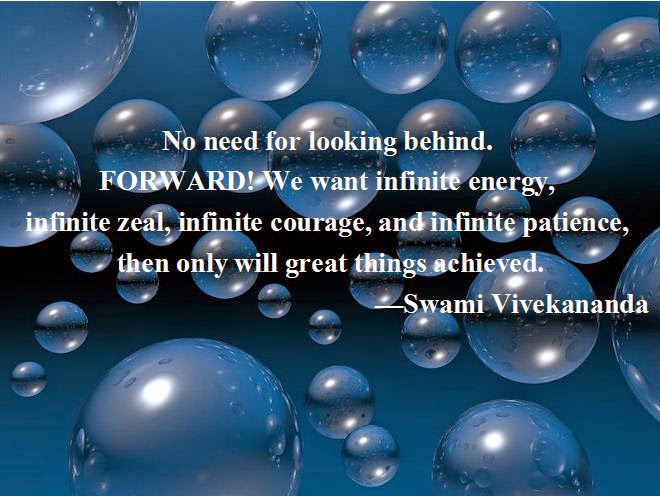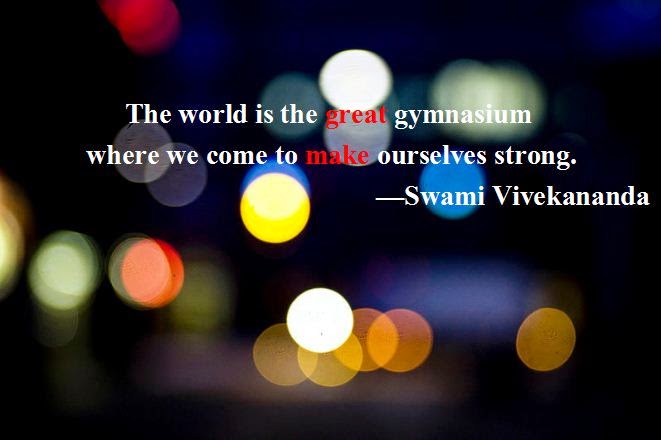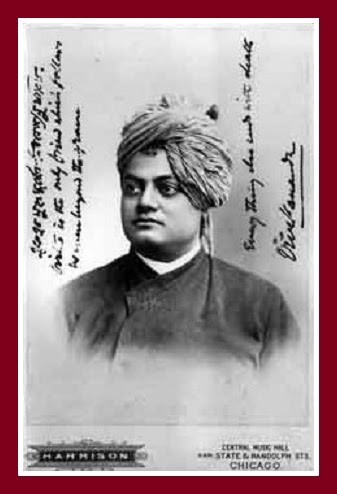Lal Krishna Advani (Sindhi: لال ڪرشنا آڏواڻي, Hindi: लालकृष्ण आडवाणी) or L. K. Advani (born. 8 November 1927) is an Indian politician and a senior leader of Bharatiya Janata Party. A detailed biography of Advani is available at Wikipedia. In this article our topic is Lal Krishna Advani's quotes and comments on Swami Vivekananda.
The following excerpts have been collected from L. K. Advani's autobiographical book My Country My Life (see book details in the reference section below)—
“. . . The spectacular public response to my Ram Rath Yatra from Somnath to Ayodhya in September-October 1990 far exceeded my own expectations. Just as the struggle against the Emergency opened my eyes to the Indian people’s unfl inching faith in democracy, the Ayodhya movement opened my eyes to the deep-rooted infl uence of religion in the lives of Hindus of all castes and sects across the country. Recalling what Swami Vivekananda had said about the place of religion in India's national life, I realised that if this religiosity were to be channelled in a positive direction, it could unleash tremendous energy for national reconstruction. The Ayodhya movement also brought to the fore people’s revulsion for pseudo-secularism, as practised by the Congress party, communists and some other parties, and projected my party, the BJP, as a spirited champion of genuine secularism. . .”
L. K. Advani quoted the following words of Swami Vivekananda at the beginning of the third chapter My first twenty years in Sindh of My Country My Life—
“I recently came across a concise edition of Swamiji's* four-volume writings on the Bhagavad Gita. Titled The Charm and Power of the Gita, Swamiji in the book gives an example to illustrate the difference between the traditional orientation towards the Gita and the new man-making and nation-building orientation towards the Gita, which was imparted by Swami Vivekananda. 'In the past', Swamiji writes, 'people mostly read the Gita as a pious act, and for a little peace of mind. We never realized that this is a book of intense practicality. We never understood the practical application of the Gita’s teachings. If we had done so, we would not have had the thousand years of foreign invasions, internal caste conflicts, feudal oppression and mass poverty. We never took the Gita seriously; but now we have to. We need a philosophy that can help us build a new welfare society, based on human dignity, freedom and equality. This new orientation, this practical orientation was given to the Gita for the first time in the modern age by Swami Vivekananda.”
Editor's note: * Here "Swamiji" means Swami Ranganathananda, excerpt from the chapter: At the feet of Swami Ranganathananda
“A towering testimony to such perseverance was a project, which Eknathji had himself envisioned—to construct the Vivekananda Rock Memorial at Kanyakumari. . . . . . This is the rock on which Swami Vivekananda meditated for three days in December 1892, during his extensive travels in South India. He would say later that he meditated about the past, present and future of India. The following year, on 11 September 1893, the meditation found its most eloquent expression in Swamiji's historic speech on universal brotherhood and inter-faith harmony at the World Parliament of Religions in Chicago.”
“. . . we wanted to counter communists' claim to be the sole champion of the poor. We wanted to demonstrated that the concept of 'socialism', like the concept of 'secularism', has Indian roots, and that only the Indian way of achieving economic and social justice would ultimately succeed. We wanted to reaffirm that all great thinkers and social reformers in the Hindu tradition, including Swami Vivekananda and Mahatma Gandhi in the modern era, had been votaries of what can be termed as 'spiritual socialism'. . .”
“. . . It is appropriate for me to quote here what Swami Vivekananda said about the lesson of medieval iconoclasm of Indian history. 'Temple alter temple was broken down by the foreign conqueror, but no sooner had the wave passed than the spire of the temple rose up again. Some of these old temples of Southern India and those like Somnâth of Gujarat will teach you volumes of wisdom, will give you a keener insight into the history of the race than any amount of books. Mark how these temples bear the marks of a hundred attacks and a hundred regenerations, continually destroyed and continually springing up out of the ruins, rejuvenated and strong as ever! That is the national mind, that is the national life-current. Follow it and it leads to glory.'”
Editor's note: This quotation is taken from Swamiji's The Future of India lecture, you may read the original lecture here.
“. . . independent India is acutely conscious of the fact that it is the dreams of visionaries like Vivekananda, Aurobindo, Tagore and Gandhi that have inspired the nation during the freedom struggle and finally helped liberate it.”
L. K. Advani quotes the following words of Swami Vivekananda at the beginning of the seventeenth chapter Reminiscences and Reflections of his autobiography—
Editor's note: This quote was a part of a letter written by Swami Vivekananda, may be read here.
“. . . considerable progress has indeed been achieved in the modern era, both during the freedom movement and the decades that followed. This is due to the efforts of many modern-day saints Swami Vivekananda, Swami Dayananda, Raja Ram Mohun Roy. . .”
“Today, when the country is celebrating its day of deliverance from foreign subjection, it is well for us to remember Swami Vivekananda and his conception of the future of our country. He believed that our culture is a rich mosaic containing Hindu, Muslim and other elements. He also believed that the Hindus and the Muslims have certain things to learn from each other, which would make them not merely better Hindus and better Muslims, but, what is more important, better men. Since man-making was his religion, he exhorted his countrymen to discard narrow loves and hates and grow into that wholeness which is perfection of character. In the same vein, he exhorted the Hindus to discard the sectional loyalties of caste and sect and grow into that fullness and wholeness expressive of the Divine in man. It is as an effective help to this religion of man-making that he upheld the modern theory and practice of democracy with its faith in freedom and equality and the sacredness of personality.”
This page was last updated on: 30 April 2014, 11:32 pm IST (UTC+5:30 hours)
Number of revisions in this page: 1
Lal Krishna Advani told—
 |
| Lal Krishna Advani Image source: Wikimedia Commons (modified, image effect: filled light using Picasa) |
The following excerpts have been collected from L. K. Advani's autobiographical book My Country My Life (see book details in the reference section below)—
①
②
Let positive, strong, helpful thoughts enter into your brains from very childhood. Lay yourselves open to these thoughts, and not to weakening and paralysing ones.
 |
| Screenshot showing Swami Vivekananda's quote at the beginning og the third chapter Fair use image |
Editor's note: The quote is a part of Swamiji's lecture The Real Nature of Man, you may read the lecture here.
③
Editor's note: * Here "Swamiji" means Swami Ranganathananda, excerpt from the chapter: At the feet of Swami Ranganathananda
④
⑤
⑥
Editor's note: This quotation is taken from Swamiji's The Future of India lecture, you may read the original lecture here.
⑦
⑧
In religion lies the vitality of India, and so long as the Hindu race do not forget the great inheritance of their forefathers, there is no power on earth to destroy them. Nowadays everybody blames those who constantly look back to their past. It is said that so much looking back to the past is the cause of all India's woes. To me, on the contrary, it seems that the opposite is true. So long as they forgot the past, the Hindu nation remained in a state of stupor; and as soon as they have begun to look into their past, there is on every side a fresh manifestation of life. It is out of this past that the future has to be moulded; this past will become the future.
Editor's note: This quote was a part of a letter written by Swami Vivekananda, may be read here.
⑨
⑩
See also
References
- L. K. Advani (2008). My Country My Life. Rupa & Company. ISBN 978-81-291-1363-4
This page was last updated on: 30 April 2014, 11:32 pm IST (UTC+5:30 hours)
Number of revisions in this page: 1










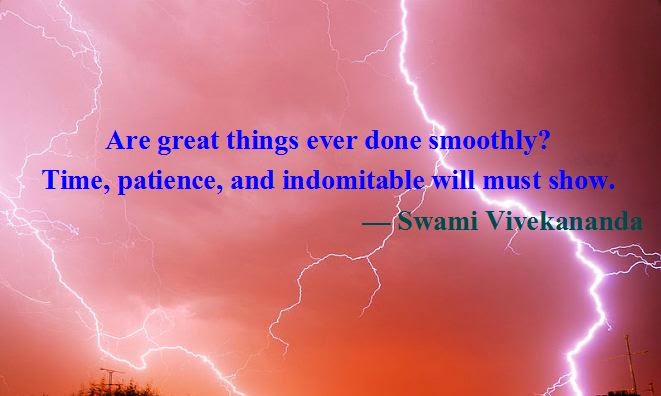


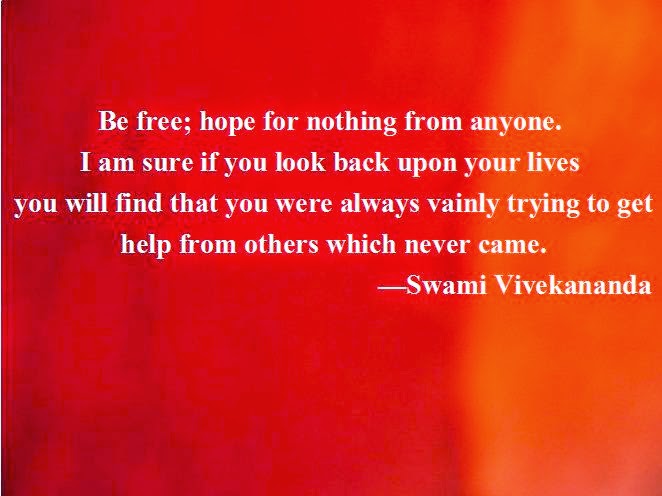



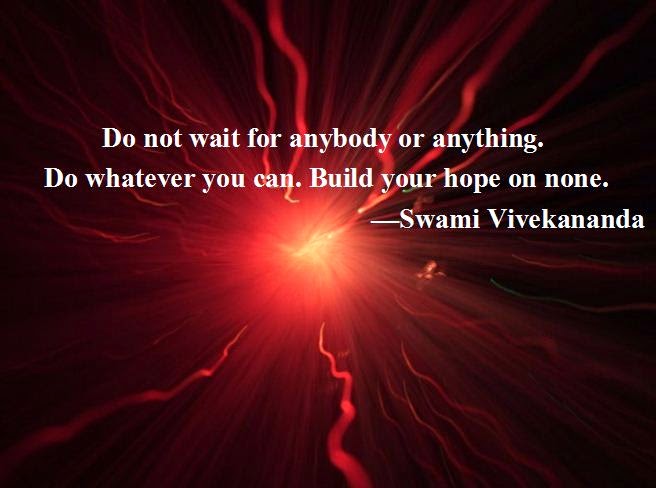
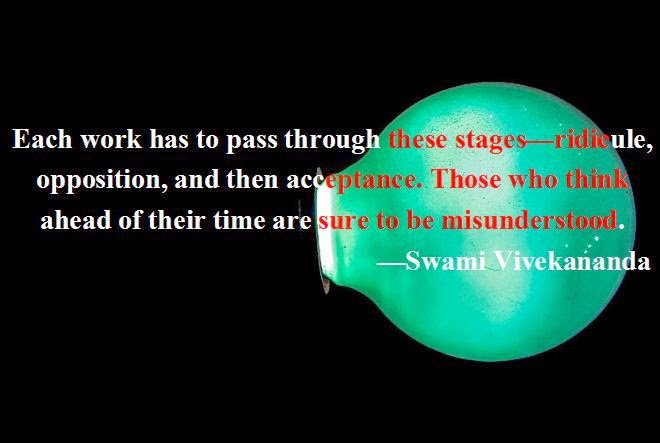
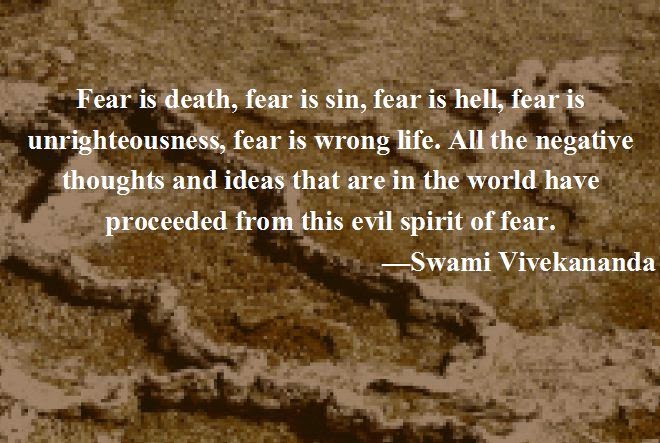
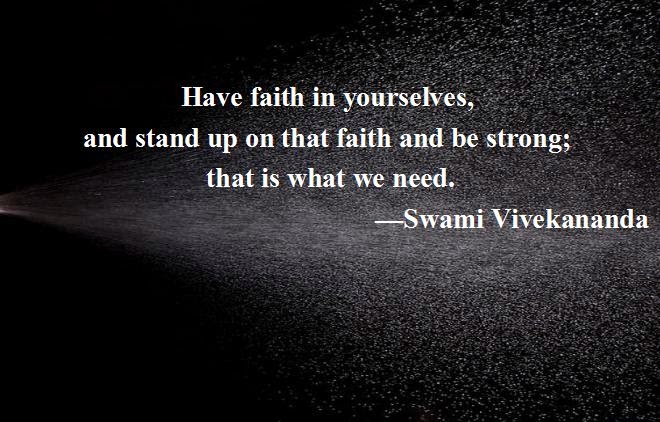
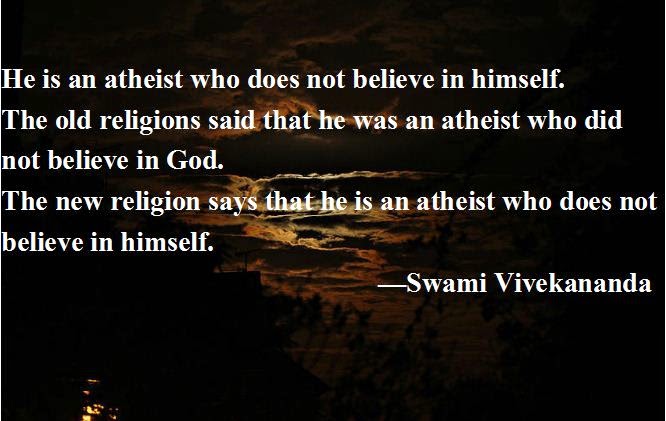

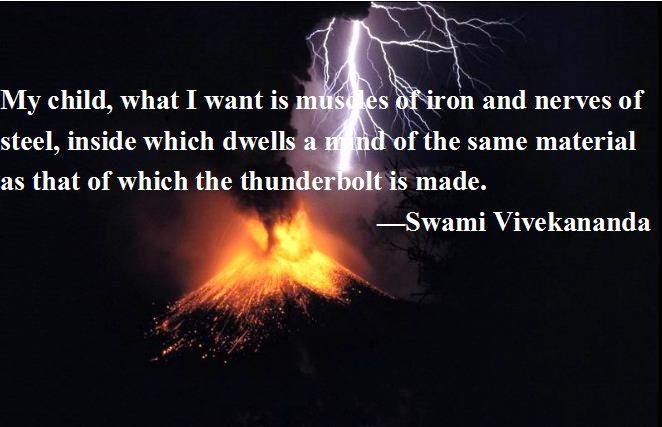

![Nightmares always begin pleasantly — only at the worst point [the] dream is broken — so death breaks [the] dream of life.](https://blogger.googleusercontent.com/img/b/R29vZ2xl/AVvXsEik48vYc9faJJRRDAxJUqI-NbmH8GlUMMTl5R2XQoBU5FHErXW0j-5RNwMVUPYq2ehX317SfkBiFOtf1Sy5FyXVM8Fhl5JKe567DQi6HaPUU2NPdIRpkL9S19qr9nWz4MSDit2rMXPWcLHk/s1600/Swami+Vivekananda+image+quote+16.JPG)
